Len Blavatnik, owner of large chunk of the music business, has been awarded a knighthood in the Queen’s Birthday List. He has donated a school of government to Oxford University and an extension to the Tate Modern gallery.

The Halle Orchestra music director Sir Mark Elder has been made a Companion of Honour, as has the singer-songwriter Sir Paul McCartney.
The composer George Benjamin receives a knighthood
The mezzo-soprano Sarah Connolly is made a Dame.
The Canadian baritone Gerald Finley is made CBE.
The double-bass player and orchestra founder Chi-chi Nwanoku becomes OBE, as do baritone Roderick Williams and European Union Youth Orchestra founder Justine Bryer.
Congratulations to all.
A last-minute LSO search for a Mahler 3 conductor on June 25 to replace Harding, who has hurt his wrist, has yielded Robert Trevino, 33, an American who is music director with the Basque Symphony Orchestra.
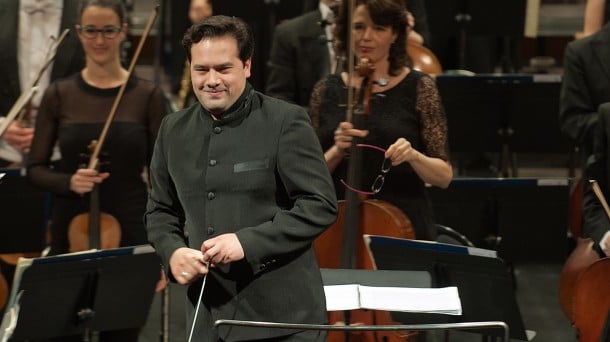
The Mongolian baritone Ariunbaatar Ganbaatar was named joint winner of the BBC Cardiff Singer of the World Song prize. He shares the prize with the Scottish mezzo-soprano Catriona Morison.
The defeated finalists were John Chest, Iurii Samoilov and Louise Alder.
Ariunbaatar Ganbaatar, a 2015 winner of the Tchaikovsky Competition grand prix, will compete again on Sunday in the Cardiff competition’s main final, as will Morison. Both are hot contenders.
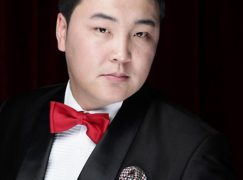
UPDATE:
Süddeutsche Zeitung reports that the Russian-born pianist is worried the US might withdraw his green card if he spends too long abroad.
In these Trumpian times, anything’s possible.
More here.

The Gewandhaus are offering to come to your place next season.
(If you’ve got the space.)
Details here. Nice pic.
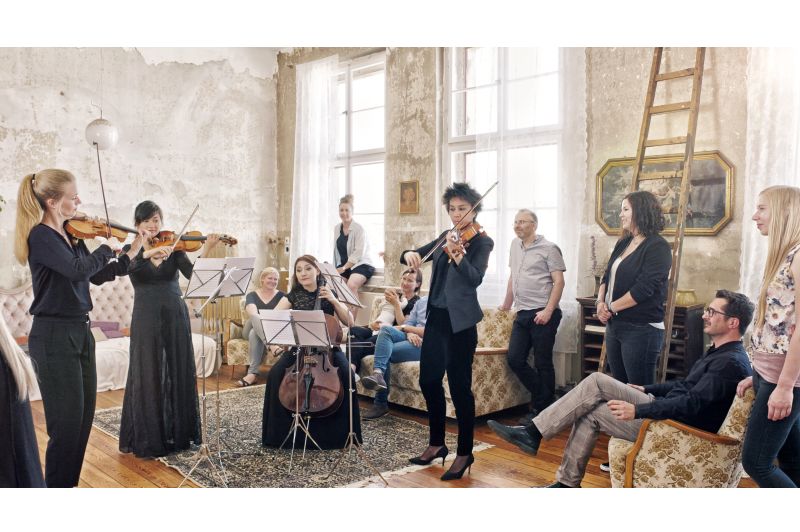
The Mexican has cancelled on Vienna for L’Elisir d’Amore next week.
An unspecified illness, they say.
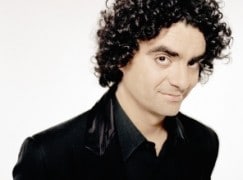
The Met got into a panic when Kristine Opolais pulled out of its new David McVicar production of Tosca, opening on New Year’s Day.
So it begged Vienna for the loan of Yoncheva, because no other big soprano will do.
And Vienna graciously obliged ‘as an act of solidarity and collegiality to the Metropolitan Opera.’
Two questions: what’s in it for Vienna?
And would the Met have been as gracious and collegial if, say, Vienna asked for the releae of Netrebko?

Here’s Vienna’s press release:
The management of the Wiener Staatsoper has released soprano Sonya
Yoncheva from her contract for three performances of Faust in
January/February 2018 as an act of solidarity and collegiality to the
Metropolitan Opera in order to enable her to take over the premiere and
long run of performances of Tosca in New York. The artist will instead
return to the Vienna State Opera as Tosca in the 2019/2020 season. Sonya
Yoncheva will be replaced by Anita Hartig as Marguerite on January 25th,
28th, and February 2nd, 2018. She in turn will be replaced by Olga
Bezsmertna as Micaëla in Carmen on January 23rd, 26th and 29th January.
The California-based trombonist Matt Waters has done the maths:
If we’re looking at the numbers alone, the odds of winning a position is astronomical. According to data collected by Datausa.io, 8,133 Music Performance Degrees were awarded in the United States in 2015. As of May of 2017, there are 8 members of the Regional Orchestra Players Association that pay over $25,000 base salary a year, with an additional 49 under other collective bargaining agreements with the AFM. That means there are 57 orchestras that one could theoretically find full-time employment with. Fifty-seven. That doesn’t mean there are 57 positions open a year. That means there are 57 full-time jobs in that industry, that have maybe a few vacancies total per year. Needless to say, the odds aren’t good with 8000+ bachelor’s degrees in music being awarded every year, and that number continuing to grow.
Read Matt’s full assessment here. He can see some hope in the distance.

We’ve been hearing for a while that Sir Antonio Pappano will not conduct Covent Garden into the 2020s. He has been music director for 15 years, is 57 years old and he tells the Times today that it could be time to move on.
But where?
Reports that he is being considered to succeed Kirill Petrenko at Bavarian State Opera have been firmly quashed. Munich’s next music director will be appointed in tandem with whoever succeeds Niklaus Bachler as intendant.
Vienna has a music director vacancy at the state opera, but Pappano is a team player and the incoming intendant, Bogdan Roscic, is not.
There are no obvious vacancies in the US at the moment.
Mortality may create one somewhere but, for the moment, Pappano may choose to relax for a couple of years as a guest conductor while surveying a congested field.
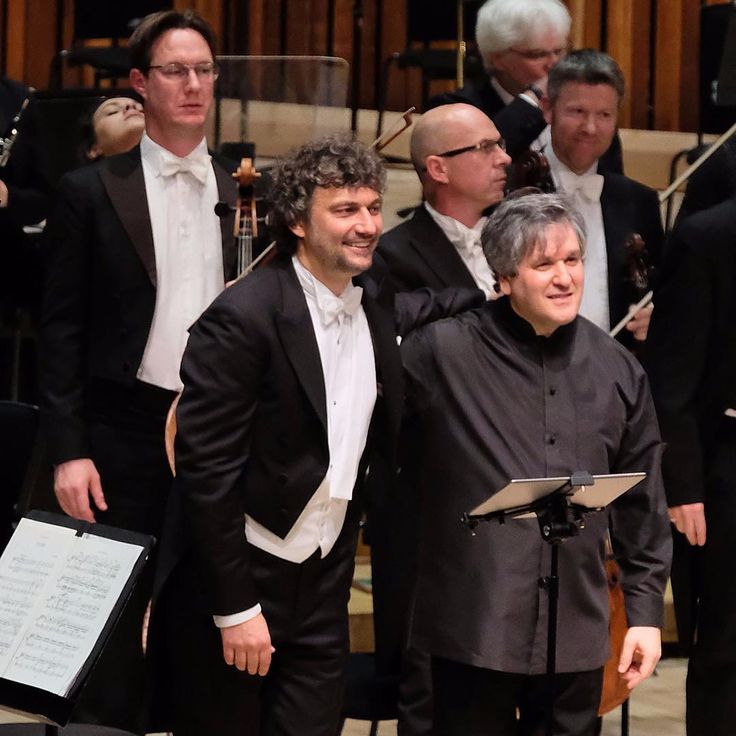
It was intended as a grand farewell to an opera career that has spanned half a century. But the singer has now acknowledged that the Aida production he wanted to take on a tour of international arenas this year band next is not going to happen.
Yesterday, the organisers, Art & Entertainment LIVE GmbH, filed for bankruptcy in Duesseldorf. Early ticket buyers may not get their money back.
Domingo, 76, called it ‘a great disappointment’.
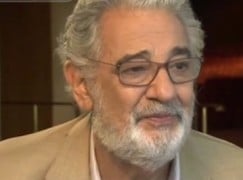
I’m sitting in the Berlin Philharmonie last night listening to Ravel’s Mother Goose, a piece that does not engage all of the brain cells, when I feel an urgent need to check who’s playing second flute.
I turn the booklet page with barely a whisper.
The guy next to me goes ‘shhh’ and touches me on the arm.
He’s young, white-shirted, stone-faced.
Overcoming my natural instinct to realign his nose 30 degrees to the right, I swallow the rebuke and reflect that Berlin has its fair share of jerks and I was unlucky to find one in an adjacent seat.
Later, while Joyce DiDonato is lustrously dying on stage as Cleopatra (hey, Berlioz – she brought her own asp), the guy next to me yawns. Audibly.
After the interval he does not return, missing the chance to see Berlin Phil swagger through Stravinsky’s Firebird. Ludovic Morlot was making his debut, a decent effort. My shusher missed it.
What kind of inadequacy does it take in a person to feel a need to maintain concert silence, even when that silence has not been perceptibly broken? I could have made a call this morning and found out the offender’s name, but why bother? What perplexes me is why jerks like this go to concerts, or half-concerts. Is it only for the dubious satisfaction of shushing others who are actually enjoying themselves?
Your thoughts, please.

Our diarist Anthea Kreston left her idyllic smalltown life in the US last year to play in an international string quartet based in Berlin. While the quartet is on sabbatical, Andrea and her family have been reflecting on the meaning of it all. Some of her Curtis classmates have hit the headlines. Others live in a one-room apartment, waiting for then phone to ring. All were trained for the same kind of success. But success, finds Andrea, comes in many forms – some more satisfying that others.
Read on.
What is success? Often, we see success through the lenses of the world, through the filter of history, from others in our chosen field. A beautiful workspace, a name which is recognized, deferential treatment, power. In many ways, I have experienced these types of successes in the past year and a half. The number of sharply dressed men in pony tails, who deliver glasses of champagne, the nitty-gritty of my professional life parsed out to a large group of people, many of whom I don’t even know by name, cars which transport me to famous halls filled to capacity, glamorous afterparties and swank hotels – these things have appeared in my life.
But – what, really, is success? Is it a feeling, or something tangible? Is it measured by others, or is it possible that is can be completely owned by the participant, regardless of public perception? As a student at Curtis, I was naturally placed into the highest echelons of classical music – the expectations after graduation were careers as soloists, or entering a top 10 orchestra. Nothing else (it seemed) was acceptable. There is something I would call the “Curtis Effect”, where a percentage of graduates don’t find an easy path towards their definition of success, and end up living a hermit’s life – frozen and unable to take advantage of the huge collection of gifts they have, and instead, thinking that any activity below the top level career is unthinkable.
I remember, when there was a last-minute opening as conductor of Connecticut College Orchestra (a wonderful liberal arts college where Jason and I taught). I looked up one of my old school-mates, who had not gotten his dream job yet. He turned down the interview before my sentence was finished – the idea of conducting a college orchestra was worse than scraping by in a shared apartment in Queens. So – they offered the job to Jason – and Jason said he would take it only if he could split it 50/50 with me. By the end of three years, we had grown the program by 100% and also begun a popular free series for families – it is one of our fondest memories of our Connecticut years. Curtis is no longer like this, by the way – under the steady and open-minded hand of Roberto Diaz, they now have an active outreach and educational component.
So – what is success? For me – it is joy, it is challenge, it is connection, it is surprise and failure. At the end of my life, I don’t want to look back and realize that I followed someone else’s cookie-cutter definition of success.
Next week I play again (viola) with the Berlin Philharmonic – with Sir Simon Rattle. And – I return soon to Venice to solo again with the Interpreti Veneziani. Maybe this time I will participate in the underpants group changing room. Ha ha. I met someone the other week – a famous musician – who said, “well, I would never play in an orchestra – not even Berlin, and certainly not viola”. As if, somehow, playing viola (god forbid) in the best orchestra (oh dear) in the world was beneath them. I should have said, at that point, “well – I have to run now – my three year old student comes
tomorrow and I need to get to McPaper for more construction paper and glitter glue!”
My student did come today – and I made up a new game called “Mrs. Twinkle Mix-Up”, and after that, I ran to meet Norman Lebrecht for coffee – our first meeting. In some ways, the lessons with my youngest students are my most difficult challenges, and my most satisfying successes. Norman was wonderful! I got a selfie of our cups, but forgot to snap a photo of us together. Gives me something to look forward to next time.

An afterthought from Ralph Waldo Emerson:
What is Success?
To laugh often and much;
To win the respect of intelligent people
and the affection of children;
To earn the appreciation of honest critics
and endure the betrayal of false friends;
To appreciate beauty;
To find the best in others;
To leave the world a bit better, whether by
a healthy child, a garden patch
or a redeemed social condition;
To know even one life has breathed
easier because you have lived;
This is to have succeeded.












